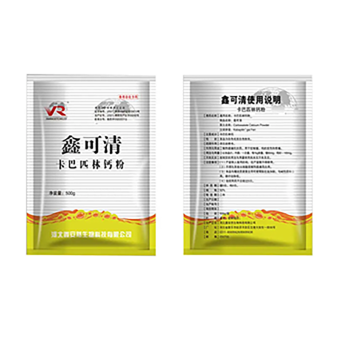- Afrikaans
- Albanian
- Amharic
- Arabic
- Armenian
- Azerbaijani
- Basque
- Belarusian
- Bengali
- Bosnian
- Bulgarian
- Catalan
- Cebuano
- Corsican
- Croatian
- Czech
- Danish
- Dutch
- English
- Esperanto
- Estonian
- Finnish
- French
- Frisian
- Galician
- Georgian
- German
- Greek
- Gujarati
- Haitian Creole
- hausa
- hawaiian
- Hebrew
- Hindi
- Miao
- Hungarian
- Icelandic
- igbo
- Indonesian
- irish
- Italian
- Japanese
- Javanese
- Kannada
- kazakh
- Khmer
- Rwandese
- Korean
- Kurdish
- Kyrgyz
- Lao
- Latin
- Latvian
- Lithuanian
- Luxembourgish
- Macedonian
- Malgashi
- Malay
- Malayalam
- Maltese
- Maori
- Marathi
- Mongolian
- Myanmar
- Nepali
- Norwegian
- Norwegian
- Occitan
- Pashto
- Persian
- Polish
- Portuguese
- Punjabi
- Romanian
- Russian
- Samoan
- Scottish Gaelic
- Serbian
- Sesotho
- Shona
- Sindhi
- Sinhala
- Slovak
- Slovenian
- Somali
- Spanish
- Sundanese
- Swahili
- Swedish
- Tagalog
- Tajik
- Tamil
- Tatar
- Telugu
- Thai
- Turkish
- Turkmen
- Ukrainian
- Urdu
- Uighur
- Uzbek
- Vietnamese
- Welsh
- Bantu
- Yiddish
- Yoruba
- Zulu
Nov . 11, 2024 07:24 Back to list
tylosin injection
Tylosin Injection An Overview of its Use and Benefits in Veterinary Medicine
Tylosin is an antibiotic belonging to the macrolide class, widely used in veterinary medicine for the treatment of various infections in animals. This antimicrobial agent is particularly effective against certain bacterial pathogens and is utilized in the treatment of respiratory infections, skin infections, and other conditions caused by susceptible bacteria. Tylosin is frequently administered via injection, which allows for rapid absorption and an effective therapeutic response.
Mechanism of Action
Tylosin works by inhibiting bacterial protein synthesis. It binds to the 50S ribosomal subunit of bacteria, disrupting their ability to produce proteins essential for growth and replication. This mechanism makes tylosin effective against a variety of Gram-positive bacteria and some Gram-negative bacteria, as well as certain mycoplasmas and spirochetes. Tylosin's spectrum of activity has made it a go-to option for treating some zoonotic and infectious diseases in various species, particularly in livestock.
Indications for Use
In veterinary settings, tylosin injection is commonly prescribed for
1. Bacterial Infections Tylosin is effective against infections caused by bacteria such as Mycoplasma, Actinobacillus pleuropneumonia, and some strains of Streptococcus and Staphylococcus. Conditions such as pneumonia, mastitis, and other soft tissue infections may be treated with tylosin.
2. Respiratory Diseases In cattle and swine, respiratory diseases often pose significant health risks. Tylosin can help manage these conditions, improving overall herd health and productivity.
3. Digestive Disorders Tylosin is also indicated for certain gastrointestinal disorders, including those caused by enteric pathogens. It may be used to prevent and treat necrotic enteritis in poultry and swine.
tylosin injection

Dosage and Administration
The dosage of tylosin varies depending on the condition being treated, the species of animal, and the severity of the infection. Administration routes may include subcutaneous or intramuscular injections. It is crucial for veterinary professionals to assess each individual case to establish the appropriate dosage and duration of treatment.
When administering tylosin, it is essential to adhere to guidelines provided by the manufacturer and regulatory authorities. This ensures that the injection is both safe and effective, minimizing the risk of adverse effects such as tissue irritation at the injection site or systemic reactions.
Safety and Precautions
While tylosin is generally considered safe for use in many animal species, veterinarians should conduct a thorough assessment before treatment. Factors such as age, weight, pre-existing medical conditions, and potential allergies to macrolide antibiotics should all be considered.
Additionally, tylosin has the potential to affect certain laboratory tests, leading to false results. Veterinary professionals should be aware of these interactions to avoid misdiagnosis. As with any antibiotic treatment, the potential for antibiotic resistance is a concern, underscoring the importance of using tylosin judiciously and in accordance with veterinary guidelines.
Conclusion
Tylosin injection is a vital tool in veterinary medicine, offering an effective solution for a range of bacterial infections in animals. Its broad spectrum of activity, coupled with its efficacy and rapid action, makes it a preferred choice among veterinarians. As with any medication, responsible use is paramount to ensure the continued effectiveness of tylosin and to mitigate the risks associated with antibiotic resistance.
Veterinary professionals must remain informed about the latest research and guidelines regarding tylosin use, allowing them to provide the best care for their animal patients. Proper education and adherence to treatment protocols can maximize the benefits of tylosin injection, ultimately improving health outcomes in both individual animals and livestock populations as a whole.
-
Guide to Oxytetracycline Injection
NewsMar.27,2025
-
Guide to Colistin Sulphate
NewsMar.27,2025
-
Gentamicin Sulfate: Uses, Price, And Key Information
NewsMar.27,2025
-
Enrofloxacin Injection: Uses, Price, And Supplier Information
NewsMar.27,2025
-
Dexamethasone Sodium Phosphate Injection: Uses, Price, And Key Information
NewsMar.27,2025
-
Albendazole Tablet: Uses, Dosage, Cost, And Key Information
NewsMar.27,2025













